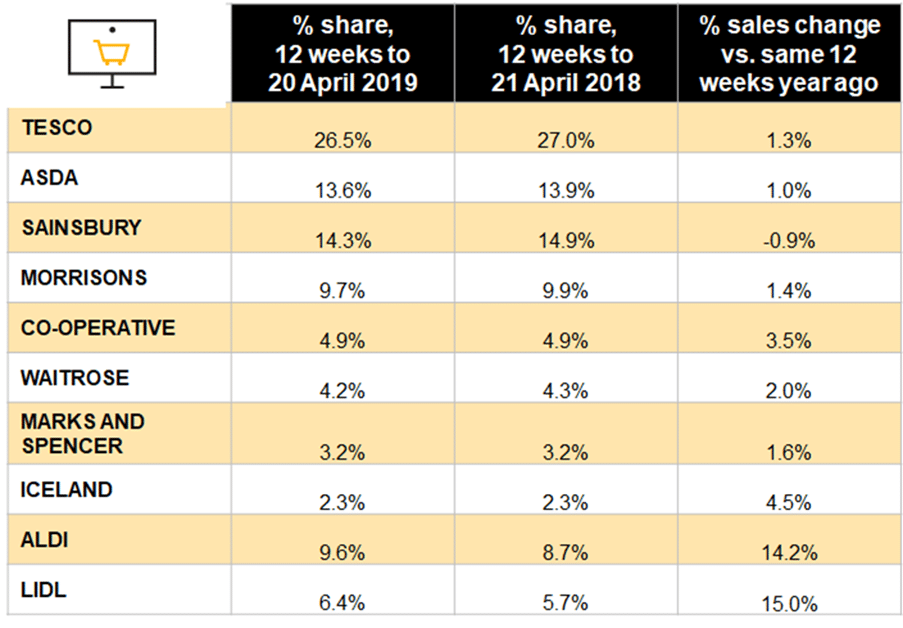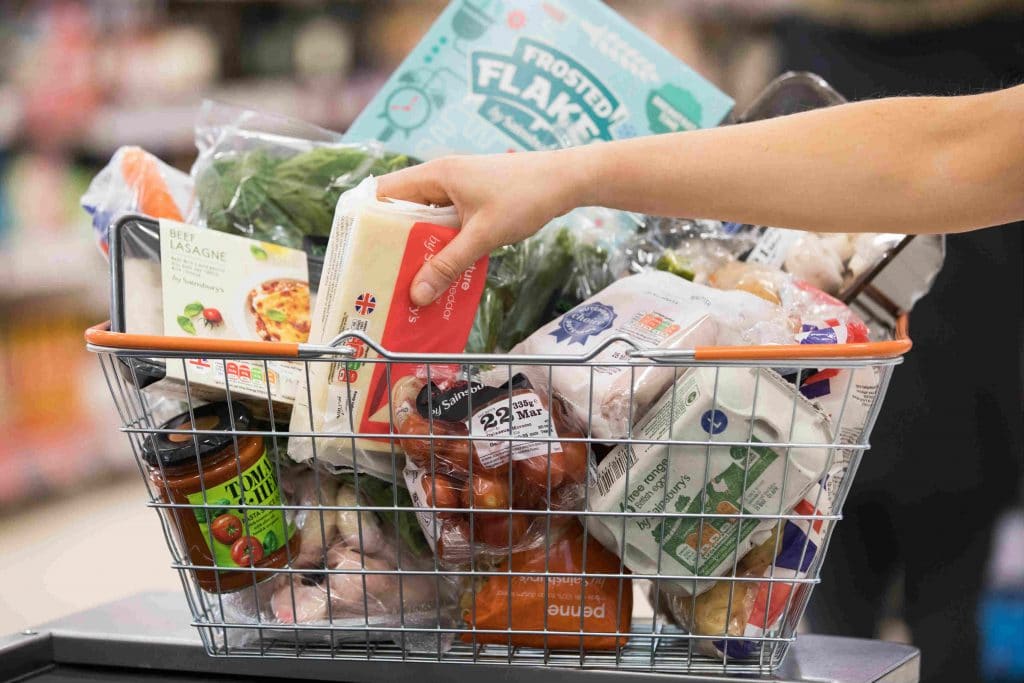// Grocery market advanced by a record £2.5bn Easter spend
// The market has grown at its fastest rate this year
// Sainsbury’s returns to 2nd position in terms of grocery market share despite 1.2% sales dip
The grocery market has grown at its fastest rate this year, advanced with a record £2.5 billion Easter spend.
For the 12 weeks ending April 21, Kantar Worldpanel found total year-on-year sales in the UK grocery sector increased by two per cent.
In terms of market share, Sainsbury’s returned to second position despite a sales decline of 1.2 per cent.
READ MORE:
Kantar’s data also found that shoppers bought £335 million worth of Easter eggs and seasonal chocolate in the past 12 weeks.
Meanwhile, German discounter Aldi attracted 823,000 additional customers amid store expansions, while rival Lidl experienced a growth of 8.6 per cent, which pushed its market share to a new high of 5.7 per cent, up 0.3 percentage points compared with last year.
“Half of Lidl’s sales now come from the fresh and chilled aisles and its performance this period was fuelled by customers spending an extra £14 million on dairy items and £13 million on fruit, vegetables and salads,” Kantar Worldpanel head of retail insight Fraser McKevitt said.
“Aided by its store-opening programme, Aldi attracted an additional 823,000 shoppers through its doors to grow sales by 11.6 per cent and increase its market share by 0.6 percentage points to 7.9 per cent,” he said.
Aldi’s UK chief executive Giles Hurley said the retailer’s best-ever Easter sales performance helped it maintain its position as the fastest-growing supermarket in the UK.
“This was a record-breaking Easter for Aldi, our hot cross buns proved particularly popular, selling more than two million a week in the run-up to the holiday,” he said.
“This strong Easter trading period, following our best-ever Christmas, shows that Aldi is increasingly becoming the supermarket of choice for key seasonal events.
“This is because shoppers know they can treat themselves and their families at Aldi for a fraction of the price they would pay elsewhere.”
Co-op and Ocado, on the other hand, were the only other retailers to gain market share on last year, moving to 6.1 per cent and 1.3 per cent respectively.
“Co-op has been able to capitalise on periods of warmer weather as people shop closer to home and, with a 4.5 per cent increase during the past 12 weeks, it has now grown sales continuously for a full year,” McKevitt said.
“The convenience retailer continues to perform well when it comes to small shopping baskets, accounting for 17 per cent of all trips where people spend less than £20.”
Meanwhile, Tesco remains secure in its position as the UK’s leading supermarket in terms of market share.
“More than three quarters of British households visited Tesco in the past 12 weeks, over five million more than each of its two closest rivals,” McKevitt said.
“Meanwhile, Sainsbury’s and Asda are continuing to battle it out for second place.
“Two thirds of the public were aware of the proposed merger: the majority of those who knew about the CMA ruling didn’t have an opinion as to whether it was a good or bad outcome, while only one third welcomed the decision.”
Asda’s sales had increased by 0.3 per cent to take market share of 15.2 per cent.
“The average Asda shopping basket increased in value and shoppers visited more often,” McKevitt added.
“Asda remains strong in its northern heartland with the north of England and Scotland accounting for more than 40 per cent of sales.”
Moreover, Morrisons has 10.3 per cent market share as it remains ahead of Aldi.
Alcohol sales were the biggest contributor to Morrisons’ 0.6 per cent growth.
Kantar Worldpanel also found that Iceland and Waitrose sales rose by 1.4 per cent and 0.7 per cent respectively, with Iceland holding market share of 2.1 per cent and Waitrose falling back by 0.1 percentage points to five per cent.
Meanwhile, separate data from Nielsen shows that following a slow start to the year, consumer spending in the grocery sector increased in April by 5.9 per cent for the four weeks to April 20.
This marked the highest level since the late Easter in 2014 and the summer heatwave of 2013.
Nielsen said the unseasonably warm weather, coupled with Mother’s Day and the late Easter bank holiday weekend all contributed to the improvement in sales growth.
“While shoppers are still looking to get the best value for money for their weekly groceries, they are also still prepared to indulge in affordable treats in order to make the most of long weekends, and enjoy the warm weather with friends and family,” Nielsen’s head of retailer insight Mike Watkins said.
Nielsen’s latest data also indicates that over the 12 week period, all retailers – aside from Sainsbury’s – experienced growth, with Aldi and Lidl maintaining their double digit growth and combined market share of 16 per cent.



















